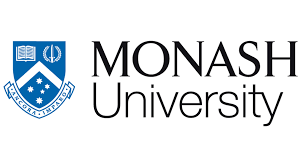Monash University: Railway research leader marks 50th anniversary
Victorian Deputy Premier Jacinta Allan joined Monash University’s Institute of Railway Technology (IRT) – experts in heavy haul operations and mass transit railway systems research and innovation – to celebrate half-a-century of excellence in railway research this week.
Over the past five decades, IRT’s researchers have collaborated and worked with over 160 national and global industry partners to deliver solutions-oriented research towards railway management and maintenance, rail welding, wheel-rail interface, real-time condition monitoring, advanced data analytics and dynamic railway modelling.
The IRT has also progressed new sustainable technologies with projects to include kerbside plastic waste materials in building modular tram stop platforms and sleepers in an effort to reduce carbon footprints and to achieve a circular economy through innovative railway products.
Monash University President and Vice-Chancellor Professor Margaret Gardner AC congratulated the Monash IRT for achieving 50 years of excellence in railway research.
“The IRT is a great example of a globally-engaged research institute that is making a real and positive impact on industry and communities around the world,” Professor Gardner said.
“The Institute’s innovations are closely aligned to the University’s ambition to address the global challenges of the day, through excellent research and education, for the betterment of our communities. This includes advancement of railway technologies to deliver safe, sustainable and resilient transport networks.”
Led by the Deputy Premier of Victoria, industry partners and IRT’s researchers came together to mark the Institute’s 50-year milestone through a celebratory event last night.
Monash IRT Director Professor Ravi Ravitharan said strengthening research and innovation capabilities are key to transforming the future of Australia’s railway industry.
“Digitally enabled systems and advanced technologies will play a critical role to improve efficiencies, sustainability and can seamlessly integrate multi-modal transport networks to meet changing demands,” Professor Ravitharan said.
“The IRT is keen to continue to be part of and contribute to national and global conversations to deliver efficient transport systems and achieve a net-zero carbon emissions reduction.”
Founded in 1972, IRT evolved from BHP’s Melbourne Research Laboratories and became part of Monash University in 2000.
“Monash IRT has provided technological leadership and support to the advancement of BHP’s railway operations in the Pilbara. BHP’s railway operations are regarded as world class, and we acknowledge the research and development that has supported achieving this benchmark,” BHP’s Minerals Australia President Edgar Basto said.
Over the past decades, IRT has provided technical solutions for, and worked with a number of major global railway industry partners and national railway operators in Hong Kong, Singapore, Taiwan, Thailand, Dubai, Indonesia, Malaysia and the United Kingdom.
Jacob Kam, Hong Kong’s Mass Transit Railway CEO acknowledged the successful partnership with Monash IRT spanning over 33 years.
“Our partnership with Monash IRT is one of the critical success factors for our 99.9 plus per cent world class service punctuality and for continuous improvement in safety performance of our railway systems,” Mr Kam said.
Monash IRT researchers have developed innovative real-time condition monitoring technologies which have significantly improved railway operations through predictive capabilities that support new approaches to maintenance, improvements to safety and efficiencies and contribute to the longer term sustainability of railways.

